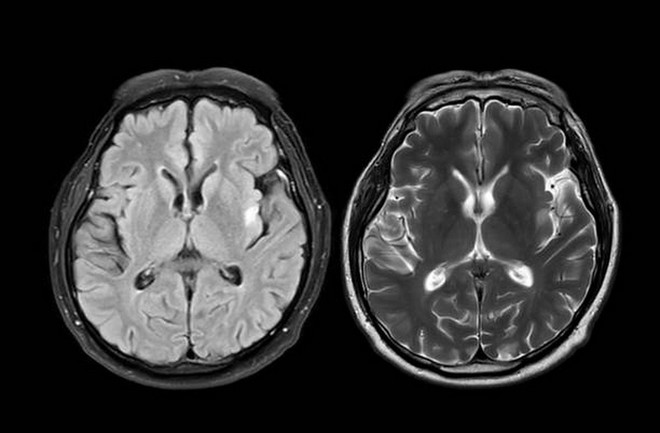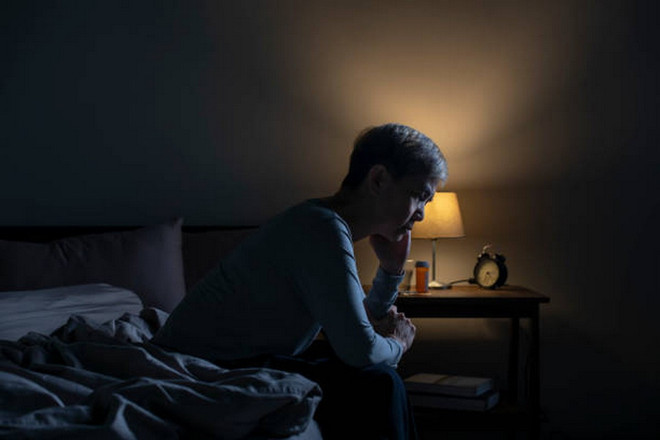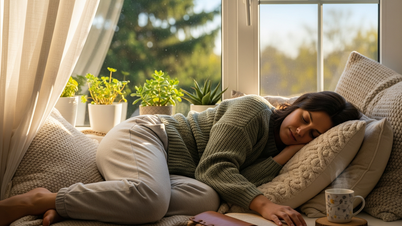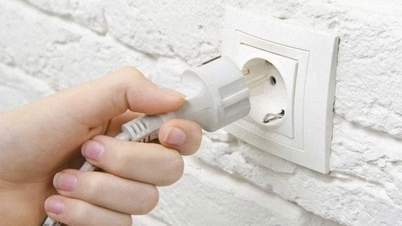Insomnia, especially chronic insomnia, not only makes you constantly tired and lacking energy, but is also a "hidden culprit" that accelerates brain aging, increases the risk of dementia and many other dangerous diseases.
Poor sleep - an early warning sign of cognitive decline
According to the medical definition, chronic insomnia is a condition of difficulty sleeping at least 3 days/week and lasting more than 3 months. This is not simply a sleep disorder, but can also be an early warning sign of neurological disease.
During deep sleep, the brain organizes and stores memories and consolidates learning. Poor sleep quality disrupts this process, making the patient less focused and forgetful.
A study published in the journal Neurology that followed nearly 2,800 healthy older adults for more than five years found that people with chronic insomnia had a 40 percent higher risk of mild cognitive impairment (MCI) or dementia than the other group.
The results also showed that long-term sleep deprivation can age the brain by the equivalent of four years. CT scans showed a buildup of amyloid plaques and white matter lesions - changes characteristic of Alzheimer's disease.

This makes experts warn: chronic insomnia is not just a transient symptom, but can be the "starting point" of serious memory disorders later on.
Other serious effects of prolonged insomnia
Sleep deprivation not only impairs memory but also leads to a series of consequences for physical and mental health. The most common harmful effects include:
Mood swings, irritability
Lack of sleep makes the body tired, leading to negative mood. People with insomnia often get angry easily, overreact and have difficulty controlling their emotions, affecting social relationships.
Increased risk of depression
Sleeping less than 6 hours a night significantly increases the risk of depression. Chronic sleep deprivation leads to poor mental health and creates conditions for anxiety and mood disorders to develop.
Weakened immune system
During sleep, the body secretes cytokines - compounds necessary for immune function. Sleep deprivation reduces cytokine production, making the body more susceptible to disease and taking longer to recover from illness.

Heart disease and stroke
Many studies show that insomnia is closely related to high blood pressure, heart failure, and atherosclerosis. The World Stroke Association warns: young people with frequent insomnia (18-34 years old) have an 8 times higher risk of stroke than people who get enough sleep.
Metabolic disorders, diabetes risk
Lack of sleep causes an imbalance in the hormones insulin and cortisol, thereby causing blood sugar metabolism disorders, increasing the risk of obesity and type 2 diabetes.
What to do to escape the "spiral" of insomnia?
Chronic insomnia needs to be examined and treated early. However, in addition to the doctor's regimen, you can completely proactively improve your sleep with simple habits.
Create a "biological rhythm" for the body
Try to go to bed and wake up at the same time every day, even on weekends. Avoid sleeping in too much during the day, don't use your phone before bed, and limit caffeine and alcohol in the evening.
Eat and drink to support sleep
Some foods such as salmon, almonds, kiwis or walnuts are rich in nutrients that help produce melatonin - the hormone that regulates sleep. Avoid greasy foods, sweets or processed foods in the evening.
Thanks to the power of herbs
Chamomile tea, lotus tea, and passionflower tea have long been used as natural sedatives. In addition, ginkgo biloba and blueberry have also been shown to improve cerebral blood circulation, supporting better sleep quality.
Let the natural scent soothe your sleep
Essential oils from lavender, jasmine or lemongrass have a relaxing effect on the nerves, helping you fall asleep more easily. A little essential oil in the bedroom can turn the space into a real place to rest.
Exercise to “de-stress”
Regular exercise is not only good for your heart health but also helps you sleep better. Spend 30 minutes a day walking briskly, doing yoga or swimming, and you will find that sleep comes more naturally./.
Source: https://www.vietnamplus.vn/mat-ngu-man-tinh-day-nhanh-qua-trinh-lao-hoa-nao-va-tang-nguy-co-mat-tri-post1061708.vnp




![[Photo] Prime Minister Pham Minh Chinh attends the closing ceremony of the exhibition of national achievements "80 years of the journey of Independence - Freedom - Happiness"](https://vphoto.vietnam.vn/thumb/1200x675/vietnam/resource/IMAGE/2025/9/15/a1615e5ee94c49189837fdf1843cfd11)
![[Video] Closing Ceremony of the National Achievement Exhibition on the Evening of September 15, 2025](https://vphoto.vietnam.vn/thumb/1200x675/vietnam/resource/IMAGE/2025/9/15/a85c829960f340789cb947f8b5709fa8)
![[Photo] General Secretary To Lam chaired a working session with the Standing Committee of the Party Committee of the Ministry of Foreign Affairs](https://vphoto.vietnam.vn/thumb/1200x675/vietnam/resource/IMAGE/2025/9/15/f26e945b18984e8a99ef82e5ac7b5e7d)





































































![[Live] Closing of the National Achievements Exhibition "80 Years of Journey of Independence - Freedom and Happiness"](https://vphoto.vietnam.vn/thumb/402x226/vietnam/resource/IMAGE/2025/9/15/de7064420213454aa606941f720ea20d)




























Comment (0)